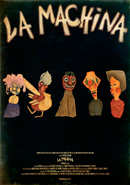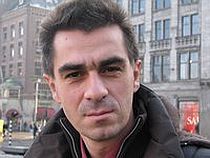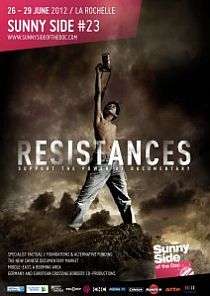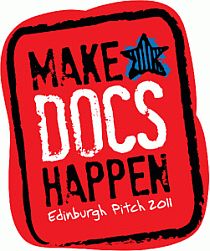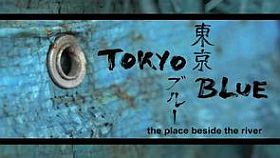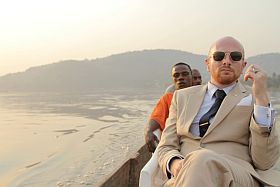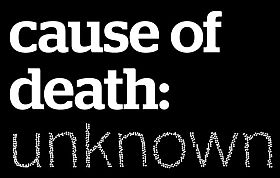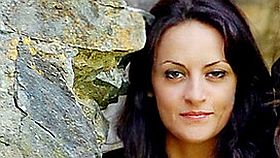


Truls Lie: The Seduced Human (director’s cut)
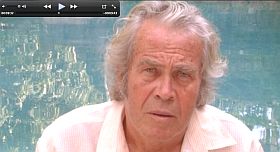
Nu forstår jeg, hvorfor Jørgen Leth i den her film skal sidde nede i sit svømmebassin. I den lave ende, selvfølgelig, ikke på det dybe vand. Det er en del af en associationsleg. Og den leg kommer faktisk til at fungere, næsten så raffineret som en Greenawaysk nedtælling. Jeg bliver ved dette delvise gensyn af Truls Lies materiale mere og mere opmærksom på spørgsmålene, som jeg i forrige film overhørte, det er hver gang kun et enkelt ord i opfordrende spørgetone: Skam? Dorothe? Lyst? Jean Luc Godard? Det legende menneske? Lars von Trier? Og belært af, og eller på linje med Warhols berømte optræden, ved Leth, at nu han er i situationen, må han gå planken ud. Bestod jeg? Spørger han, gribende oprigtigt ydmyg, da han bliver hjulpet op efter optagelsens afslutning. Var det godt nok? Og det må siges, at Jørgen Leth med dette særegne interview på vandet, hvor han hurtigt og præcist, som man skal i den leg, leverer den øjeblikkelige tankeforbindelse og folder den ud i erindring og overvejelse, så dette stramt regelbundne afsnit sammen med en del flere noget mere samtaleprægede scener leverer den ærlige og detaljerede fortælling om det af filmkunsten forførte menneske, denne Jørgen Leth, om det filmværk, dette menneske har skabt og om de omstændigheder, også naturligvis de mest personlige, hvorunder de mange film er blevet til. Den fortælling leverer Leth som medvirkende i Lies film. Ja, Leth bestod.
Denne film nummer to er i spillefilmlængde, næsten. Det ekstra kvarter og tror jeg udeladelsen af en del reportage har skabt mere ro. Og det har givet mere plads til dybde, måske. Det føles i hvert fald som en musikalsk gevinst, en emotionel udvidelse, men jeg er nu ikke sikker på, at der i og for sig er mere materiale i den længere version, i hvert fald ikke skærpede argumentationer og slet ikke nye indsigter. Men der er givet mulighed for at gøre systematikken tydeligere, og der er vundet mere tid til at tænke undervejs.
Det betyder ganske vist, at den noget rigide tre akts opdeling med overskrifterne Lyst, Tvivl og Fortvivlelse nu kommer til at virke påståelig, i hvert fald for mig. Jeg sad ofte og tænkte, hvad mon den scene, jeg så i øjeblikket, havde at gøre med akt overskriften, jeg nu kunne huske. Lige netop her havde jeg hver gang brug for Lies fortællerstemme, nu den alligevel var valgt ind. Hvad jeg også i første version var glad for skønt så sparsomt anvendt, og i denne længere version havde ventet mig så meget af. Men Lie vælger altså at skjule sig selv mest muligt, og jeg er stadigvæk overbevist om, at min frustration er berettiget, at jeg mangler hans læsninger af Leths film, hans kommentarer til Leths udlægninger og fortællinger. Jeg kunne forstå det, hvis det var gennemført, så vi kun havde Leths fortælling akkompagneret af de få øvrige medvirkende på lydsiden, og Lie konsekvent havde gemt sin fortælling i sit klip.
Og hvad Søren Kierkegaard egentlig har med filmen og Jørgen Leths arbejder at gøre, er trods en mulig accentuering i den nye version stadigvæk ikke gået op for mig. Og hvad Truls Lie selv har læst af eksistensfilosofi i Leths film, holder han også fortsat beskedent tilbage. Det må så komme senere, i bogen om det forførte menneske. (Den bog ville jeg gerne læse.) Nu og her har han lavet en dybt loyal og omhyggelig film som indføring i Jørgen Leths filmværk, en omfattende elementær introduktion, som vil blive stående som standardværk til brug for det voksende publikum til Leths film. Det skal Truls Lie simpelt hen have tak for.
Truls Lie: The Seduced Human, Norge 2012, 70 min. Medvirkende: Jørgen Leth, manuskript: Truls Lie, fotografi: Truls Lie og seks fotografer yderligere, klip: Marius Smit, producer: Dag Hoel, produceret af Faction Film. En DVD skulle meget snart være til salg på filmens hjemmeside. Filmen havde for kort tid siden premiere på Krakow Film Festival og vil herefter blive vist på Odense film festival den 25. august. Efter filmen vil der være en samtale mellem Leth og Lie.
NB: DR K viser på torsdag 5.juli 21:00 Jørgen Leths Det erotiske menneske og 22:25 hans og Lars von Triers De fem bespænd.
